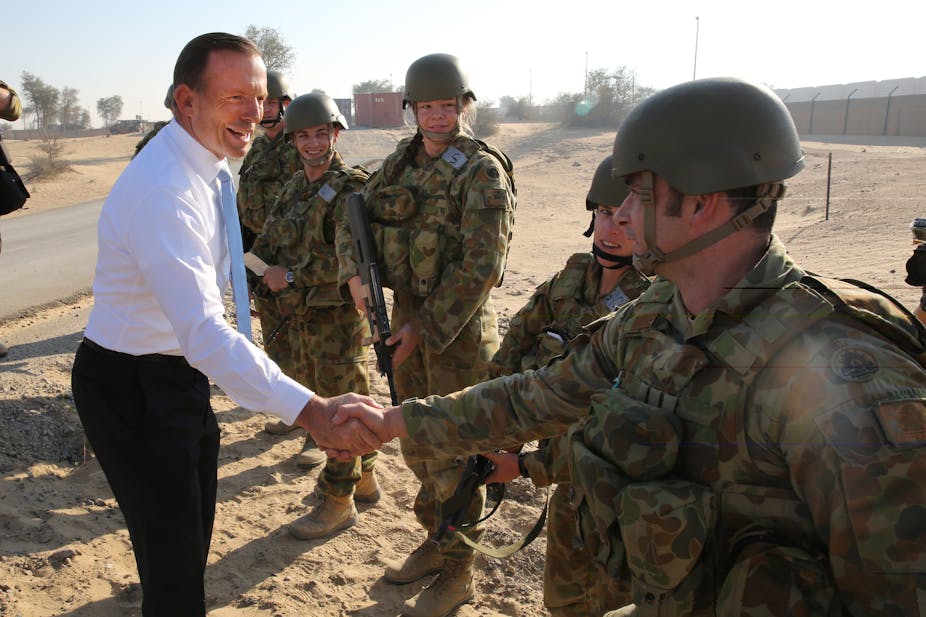What is it about Iraq? This poor benighted country has suffered from the consequences of tribalism, imperialism, factionalism, despotism, to say nothing of religious rivalries that still prevent the country from achieving even a semblance of security, much less peace. For a country and a region that takes God exceptionally seriously, He doesn’t really seem to be returning the compliment.
While those of us fortunate enough to live a long way from such turmoil may react with a despairing shrug of the shoulders to Iraq’s seemingly insoluble problems, it contains some important historical and contemporary lessons to which we ought to be alert.
First, it’s important to remember that Europe still sets the historical benchmark for religiously inspired genocide and blood-letting. Does anyone remember quite what the Huguenots did to upset the Catholics in the 16th century, for example? Whatever it was, it merited dispatching them by the thousands. Let’s not forget the industrialised mass murder of the Jews in our own time, of course.
The somewhat baffling – to the non-specialist unbeliever, at least – theological disputes between the Sunnis and the Shias are plainly taken tremendously seriously, and one introduces a note of levity into such discussions at one’s peril these days. Suffice to say such religious differences are part of a time-honoured tradition of intolerance and prejudice that leads some to think they are doing God’s will by fighting their opponents.
But before we congratulate ourselves on our immunity to such religiously inspired excesses, it is important to remember how “the West’s” most recent intervention in Iraq’s internal affairs came about. The arguments of the conspiracy theorists are not entirely without merit: the US’s intervention into Iraq may not have been “all about oil” as some claim, but the fact that Iraq has the world’s fifth-largest reserves is not irrelevant either.
Perhaps the US would have invaded Iraq whoever was in the White House at the time. However, that it was a well-known born-again Christian in the form of George W. Bush, who enjoyed the enthusiastic support of the even more messianic Tony Blair, was a not inconsequential part of the background dynamics that encouraged folly on an epic scale.
Some readers will not doubt think such considerations fanciful or marginal. Perhaps. But Blair and Bush were not only leaders for whom religious beliefs mattered a great deal, they were also in a position to decide matters of life and death and the course of history. For true believers, the belief that they were instrumental in fulfilling God’s purpose on earth cannot be easily dismissed.
This possibility was tested during a notorious interview in which Blair was asked whether he and Bush prayed together. Given that they were the two principal protagonists in the disastrously misguided Iraq adventure, it was an entirely reasonable question, but one that Blair was clearly offended to have been asked.
One might have thought political leaders the world over would have learned some painful and unambiguous lessons from the Iraq debacle about the limits to the application of power, the difficulty of nation-building and transformation, and the impossibility of unambiguously defeating a determined, entrenched, religiously motivated opponent.
One might be wrong, though. Reports that Tony Abbott discussed the possibility of unilaterally sending 3500 Australian troops to fight what he routinely describes as the Islamic “death cult” remind us that the impulse to intervene on behalf of Western civilisation remains alive and well in some minds, at least.
Abbott’s comments are all the more remarkable given that they occurred in the middle of a major domestic political crisis when one would have thought he had enough problems to contend with already. Perhaps my colleague Matt McDonald is right to suggest that focusing on supposed threats to national security is a popular ploy of leaders facing domestic crises and threats to their leadership.
But do Abbott’s views stem from a more fundamental, uncompromising ideologically and religiously informed world view? Abbott is like Blair and Bush in that he is plainly someone who takes God very seriously and possibly feels His hand upon his shoulder at times.
Pop psychology and speculation, perhaps. But how else to we explain the rigidity of some of Abbott’s views and his seeming imperviousness to advice he does not wish to hear?
It would be a rich irony if Iraq’s problems managed to once again contribute to the political demise of yet another prominent Western leader. Given all the damage and pain outsiders have inflicted on that country, there would be a certain poetic justice in this perhaps. Clearly, God really does work in mysterious ways.

